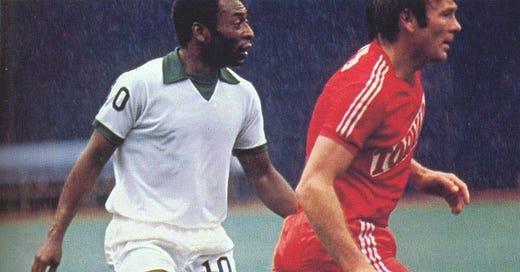Save Your Nicholls [Part 1/3]
Roy Turner and Terry Nicholl jump at their opportunities. Some players don't.
All right lad, here’s a blueprint on what NOT to do…
Dinner with your wife at the Scotch and Sirloin, followed by drinks with your girlfriend at The Hatch Cover. Fur coats. Expensive cars. Luxury vacations in the tropics that you can’t afford. Sign an autograph or two, but don’t let the fans get too close. Breeze into training five minutes late and leave…
Keep reading with a 7-day free trial
Subscribe to MISL 1980s: The Story of Indoor Soccer to keep reading this post and get 7 days of free access to the full post archives.



